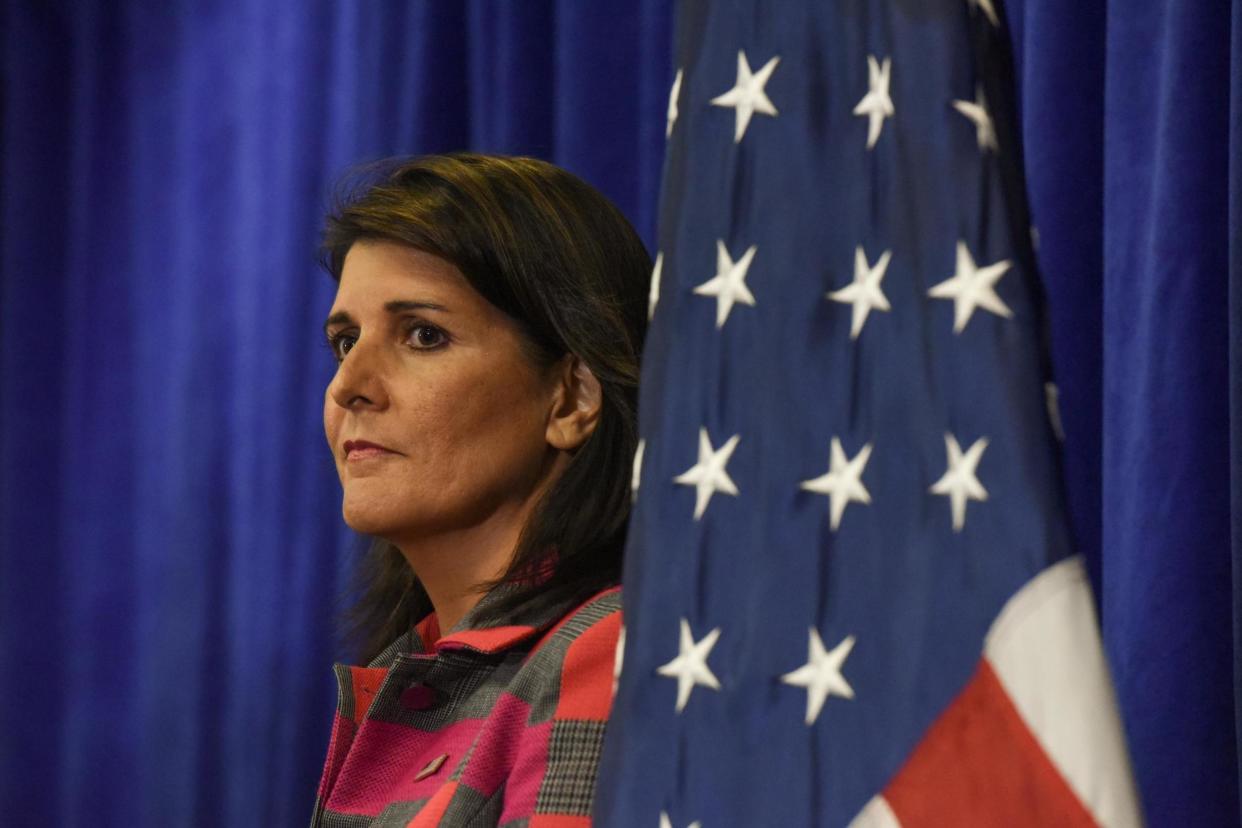Nikki Haley sees the Republican Party for what it is — so why shouldn't she pitch for the presidency?

One of the more disturbing aspects of modern American politics is the ascent of the zero-sum game. The divided culture in which Washington DC and, alas, many state governments operate means the concept of "everyone wins" is no longer an option.
While it is prevalent within Congress and the White House — making it nearly impossible for important legislation to get passed unless one party controls the House, Senate, and White House — it’s also an intra-party phenomenon.
Within the base of the Republican Party, the mindset applicable to Donald Trump is, "You're either with him or against him." There is no middle ground, and the same goes for many conservatives and Republicans critical of the president. Any praise for him is indicative of "complicity" or "normalizing" Trump's otherwise abnormal behavior; any criticism is evidence of disloyalty.
We're witnessing that mindset in hyperdrive with the release of Nikki Haley's book, With All Due Respect: Defending America with Grit and Grace. The former Ambassador to the United Nations speaks highly of Trump at times, and spoke out against the president's impeachment in recent weeks.
That was enough for Haley to get crossed off a lot of Christmas card lists. Matt Lewis, a columnist with The Daily Beast, tweeted one particularly damning phrase:
Nikki Haley is someone I once respected. https://t.co/R1rqhfcxre
— Matt Lewis (@mattklewis)
Similar sentiment flowed throughout social media — but the truth is that what seems black and white is probably shades of gray.
Come 2024, and whether Trump is ending his second term or a Democrat is running for re-election, the GOP will need a candidate to step up and prepare to run for president.
Nikki Haley is clearly thinking long-term, surveying the current political landscape but also looking five years down the road. The reality is that no matter how much people want to see either the Trump-friendly wing or the establishment wing of the GOP eradicated, it won't happen. That creates a challenge for Republican politicians, particularly those who want to run for president.
Haley is a shrewd politician and despite the protests, has broken with Trump in the past — even if she hasn't called him out by name. During the contentious Kavanaugh hearings, Trump referred to allegations against his Supreme Court pick as "brought about by people that are evil, and he toughed it out." Haley, in a speech at the time, went out of her way to say "our political opponents are not evil” in seeming response.
Nikki Haley served three terms in the South Carolina House of Representatives before getting elected twice as Governor of South Carolina. Her tenure as the Ambassador to the United Nations provides her a resumé most president aspirants could only hope to have — legislative, executive, and foreign policy experience.
For Haley to have any chance at the nomination in 2024 — assuming Trump loses next November or Mike Pence decides not to run — she’ll have to avoid a lot of landmines, and that requires huge political skill. It's relatively easy for people on the sidelines to pontificate about what she should do, but those people don't have any skin in the game. They don't have to reach a broad consensus of not only the general public but the Republican primary electorate.
Like it or not, the Republican Party will not emerge from the Trump era entirely devoid of what Trump brought to the party. Nor can the party remain all-in with what Trump brought to the party and expect to win a national election. For either side to say otherwise is wish-casting on their part, not political reality.
Time will tell if what Nikki Haley is doing creates a successful roadmap for her to the presidency. But people bemoaning what she did are making the mistake of putting faith in politicians — and that almost always end badly.

 Yahoo News
Yahoo News 
